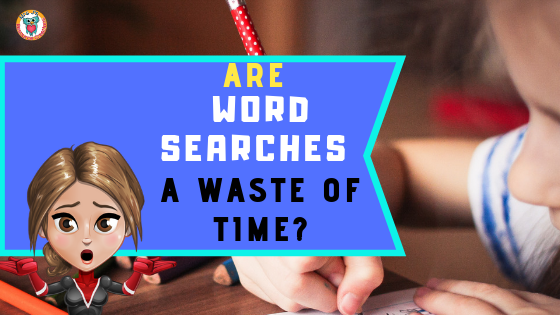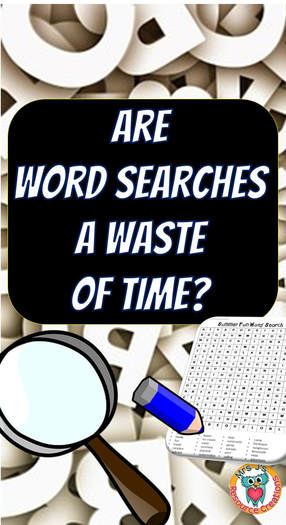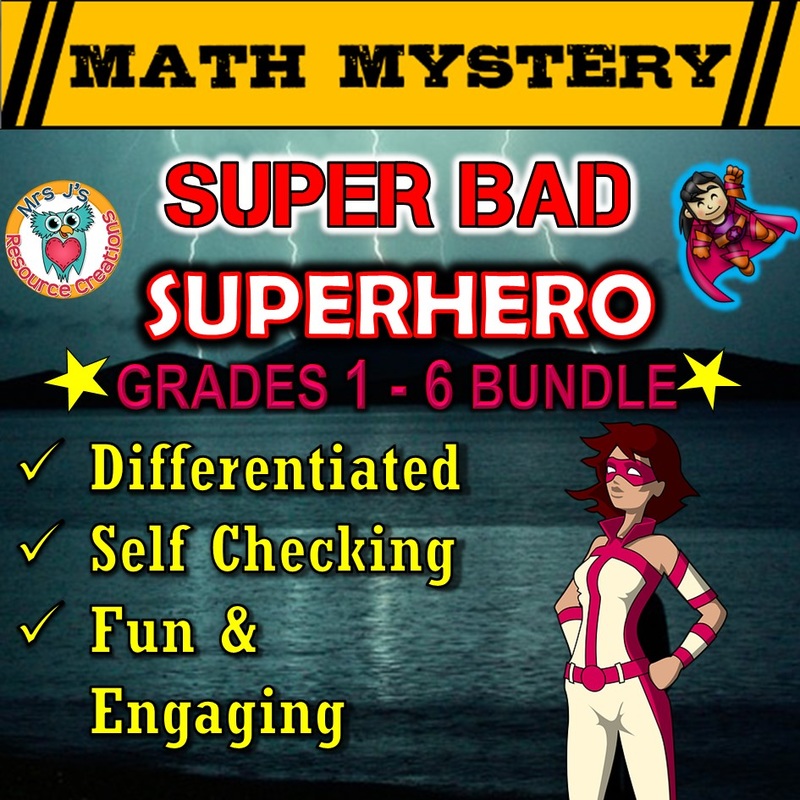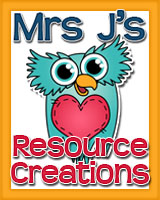- Blog
-
Teacher Resources
- Shop
-
Video Library
-
Math Mystery Video Hooks
>
- Case of the 100 Missing Treats
- Case of The Abducted Alien
- Case of The Alien Apocalypse
- Case of The Angry Adder
- Case of The Bee Bandits
- Case of the Christmas Chaos
- Case of the Construction Crew Conundrum
- Case of the Cursed Classrooms
- Case of The Disappearing Donuts
- Case of The Divided Dragon's Division Review
- Case of the Diwali Delights Dilemma
- Case of The Dream Snatcher
- Case of The Egg Thief
- Case of The Forgetful Pharaoh
- Case of The Furious Falls Winds
- Case of the Giant Goblin
- Case of The Gobbler's Curse
- Case of The Graduation Gremlins
- Case of the Great Zoo Escape
- Case of The Greedy Gnome
- Case of the Halloween Heist
- Case of the Heartbroken Heroes
- Case of the Invisible Illusionist - Integers Math Mystery Activity
- Case of the Jumpy Jack-O-Lanterns Halloween Math Mystery
- Case of The Jungle Joker
- Case of The Kidnapped Groundhog
- Case of The Litterbug
- Case of the Lost Leprechaun
- Case of the Magnificent Growth Mindset
- Case of The Mathattan Meltdown
- Case of Mean Mountain
- Case of The Millennium Bug
- Case of the Mirror Madness
- Case of The Misplaced Pot of Gold
- Case of the Missing Campers
- Case of the Missing Macaw
- Case of The Monster Mix-Up
- Case of the Never-Ending Rain
- Case of the Outback Outlaw
- Case of The Phantom Phoenix
- Case of the Pickpocketing Pirate
- Case of The Poisonous Pizzas
- Case of the Pretzel Puzzle
- Case of The Puzzled Pirate
- Case of the Red Envelope Riddles
- Case of The Robot Robbery
- Case of The Rogue Runner
- Case Of The Rotten Eggs
- Case of The School Invaders
- Case of The Selfish Elf
- Case of The Shogun's Sword
- Case of The Snowman Army
- Case of The Sticky Bank Burglary
- Case of The Super Bad Superhero
- Case of the Thanksgiving Thief
- Case of The Thankless Turkey
- Case of The Time Traveling Troll
- Case of The Tricking Treat
- Case of the Troublesome Trickster
- Case of The Valentine Villain
- Case of the Vanishing Valentines
- Case of The Vengeful Vampire
- Case of The Wacky Wild West
- Case of The Zombie Elves
- Junior Reading Mysteries >
-
Private Eye CSI Literacy Mystery Video Hooks
>
- The Case of the Actor's Accident
- The Case of the Critter Chaos
- The Case of the Devious Duo
- The Case of the Easter Egg Scapade
- The Case of the Grumpy Ghost
- The Case of the Masked Menace
- The Case of the Pilfered Pencils
- The Case of the Reckless Reindeer
- The Case of the Ruined Research
- The Case of the Stolen Surfboard
- The Case of the Turkey Tournament
- The Case of the Wacky Wand
-
Reading Mystery Video Hooks
>
- Burrow Slime
- EGGpocalypse
- Fool's Gold Read Mystery
- Forest Grime - Reading Mystery
- Haunting Hat - Reading Mystery
- Humpty's Fall Reading Mystery
- Knight's Tail
- Poisoned Valentine
- Rescue Rudolph
- Stolen Time
- Teacher Toads - Reading Mystery
- Turkey Trouble!
- Twinkle's Lost Shine
- Which Witch? - Reading Mystery
- Wizard Blizzard
- Math Quest Video Hooks >
-
A-Z Letter Detectives Video Hook
>
- The Case of the Alien's Apples
- The Case of the Banana Bandit
- The Case of the Cat's Cookies
- The Case of the Dragon's Diamonds
- The Case of the Eagle's Eggs
- The Case of the Frog's Flowers
- The Case of the Ghost's Gumballs
- The Case of the Hippo's Hat
- The Case of the Iguana's Ice Cream
- The Case of the Jaguar's Jellybeans
- The Case of the Kangaroo's Kite
- The Case of the Lion's Lollipops
- The Case of the Monster's Map
- The Case of the Ninja's Necklace
- The Case of the Octopus's Oar
- The Case of the Pirate's Pizza
- The Case of the Queen's Quiver
- The Case of the Robot's Rocket
- The Case of the Sloth's Skateboard
- The Case of the Turtle's Toys
- The Case of the Unicorn's Umbrella
- The Case of the Vampire's Violin
- The Case of the Wizard's Wand
- The Case of the X-Hero's X-Ray
- The Case of the Yeti's Yo-Yo
- The Case of the Zebra's Zucchinnis
-
Math Minute Missions
>
- Math Minute Mission Challenge #1
- Math Minute Mission Challenge #2
- Math Minute Mission #3
- Math Minute Mission #4
- Math Minute Mission #5
- Math Minute Mission #6
- Math Minute Mission Challenge #7
- Math Minute Mission #8
- Math Minute Mission #9
- Math Minute Mission #10
- Math Minute Mission #11
- Math Minute Mission #12
- Math Minute Mission #13
- Math Minute Mission #14
- Math Minute Mission #15
- Math Minute Mission #16
- Math Minute Mission #17
- Math Minute Mission #18
- Math Minute Mission #19
- Math Minute Mission #20
- Math Minute Mission #21
- Math Minute Mission #22
- Math Minute Mission #23
- Math Minute Mission #24
- Math Minute Mission #25
- Math Minute Mission #26
- Math Minute Mission #27
- Math Minute Mission #28
- Math Minute Mission #29
- Math Minute Mission #30
- Math Minute Mission #31
- Math Minute Mission #32
- Background Music >
-
Math Mystery Video Hooks
>
- TPT
- About
- Privacy Policy
- Shipping Policy
|
Word searches have a long history of strong opposition - and equally strong support. After hearing both lovers and haters, it made me question whether word searches are a waste of time in the classroom.
In the past, I've worked at a school where we were told that word searches weren't allowed to be used in the classroom anymore. While I agree that word searches are not an all of the time activity and that they are not a necessary tool towards academic achievement, it still made me question why the ban?
After conducting some research joined with my observations, I'd say that word search activities are not a complete waste of time, so there is no need to put a bad label on them. While it is true that word searches are not directly linked to student achievement, this type of activity does help develop a few important skills. So, what are the benefits of Word Searches? 1. Help develop word recognition Developing word recognition is particularly useful for emerging readers who must pay attention to the letters of a word when looking for them. 2. Boost working memory By looking at the word on the list, the student must try and remember the letters to spell the word as they search for it. To enhance this benefit or increase the difficulty, you could remove the general list of words to find and only give students clues as to what the words are (like a crossword puzzle) -- This will require them to work from a memory bank of words instead. 3. Assist in learning context clues There are many kinds of context clues that build fluency. Themed word searches contain semantic or meaning clues. For example, in aSummer Fun word search you'd expect to find words such as sunglasses, ice cream, vacation, beach, etc. 4. Extend vocabulary Word searches are a useful tool to introduce new and also review vocabulary. I've used this concept to create word searches for my students to have meaningful themes for vocabulary work such as adjectives, verbs, adverbs, and nouns. In those word search packets, I extend the work to require students to look up definitions and build sentences from the words found in the word search. Another way in which I have used a word search is when starting a new topic that has a lot of new terms. For example, when starting a unit on Government, I'd create a word search with key terminology that we will be exploring and learning throughout the unit. 5. Improve spelling Being exposed to words helps with remembering how to spell them. Plus, requiring to look for words and being able to visualize the order of the letters as a strategy, assists with remembering how to spell. So another useful way to incorporate a word search activity in the classroom would be to use the weekly spelling list in a word find. If you don't have the time to make one, give your students a blank template to make a word search using the weekly spelling list. Afterward, students can swap their made word searches with another student to complete. 6. Can be differentiated A word search can easily be differentiated by - increasing or decreasing the number of words to find - the spelling difficulty of the words to find - set a timer to challenge speed - remove the word list and require students to find as many words as possible (based on a theme or a particular set of words). 7. Low-stress activity I think this point is particularly important for setting as an early finisher task. It seems unfair to load more tough work onto a student because they finished early compared to their peers. If a word search is an option my students can do as an early finisher task, they look forward to it because it is a bit of a break... but, a break with still some value! Again, I wouldn't use them all of the time as an early finisher task, but there is no need to remove them from your collection of resources entirely. So, at the end of the day, while word searches are not a MUST in the classroom, they are not something to dismiss as having no educational value either. I wouldn't recommend using them all of the time, but they still can be a handy teaching tool if used in a meaningful way. I'm open to your thoughts on this topic too. Please feel free to comment on this post. I'd love to hear: - Do you think word searches provide any educational value? - How do you use word searches in your classroom? - Or maybe, why do you think that they shouldn't be used in the classroom at all? If you decide that you would still like to use word searches in your classroom, you can grab a few themed ones for free from my TPT store. Be sure to grab the latest Summer Fun Word Search Freebie too.
9 Comments
2/4/2022 09:20:25 am
Thank You for Sharing this informative article! Very well written.
Reply
3/8/2024 01:34:55 am
Thank you for this wonderful article. extremely fascinating topic.
Reply
5/4/2024 07:56:09 am
Thanks for sharing this info! If you're interested in a game that offers real cash prizes, give this one a shot!
Reply
Leave a Reply. |
Categories
All
AuthorA 21st century School Teacher, Mother, and Wife. This website uses marketing and tracking technologies. Opting out of this will opt you out of all cookies, except for those needed to run the website. Note that some products may not work as well without tracking cookies. Opt Out of Cookies |
|
TPT Store: Mrs J's Resource Creations
|
Proudly powered by Weebly
- Blog
-
Teacher Resources
- Shop
-
Video Library
-
Math Mystery Video Hooks
>
- Case of the 100 Missing Treats
- Case of The Abducted Alien
- Case of The Alien Apocalypse
- Case of The Angry Adder
- Case of The Bee Bandits
- Case of the Christmas Chaos
- Case of the Construction Crew Conundrum
- Case of the Cursed Classrooms
- Case of The Disappearing Donuts
- Case of The Divided Dragon's Division Review
- Case of the Diwali Delights Dilemma
- Case of The Dream Snatcher
- Case of The Egg Thief
- Case of The Forgetful Pharaoh
- Case of The Furious Falls Winds
- Case of the Giant Goblin
- Case of The Gobbler's Curse
- Case of The Graduation Gremlins
- Case of the Great Zoo Escape
- Case of The Greedy Gnome
- Case of the Halloween Heist
- Case of the Heartbroken Heroes
- Case of the Invisible Illusionist - Integers Math Mystery Activity
- Case of the Jumpy Jack-O-Lanterns Halloween Math Mystery
- Case of The Jungle Joker
- Case of The Kidnapped Groundhog
- Case of The Litterbug
- Case of the Lost Leprechaun
- Case of the Magnificent Growth Mindset
- Case of The Mathattan Meltdown
- Case of Mean Mountain
- Case of The Millennium Bug
- Case of the Mirror Madness
- Case of The Misplaced Pot of Gold
- Case of the Missing Campers
- Case of the Missing Macaw
- Case of The Monster Mix-Up
- Case of the Never-Ending Rain
- Case of the Outback Outlaw
- Case of The Phantom Phoenix
- Case of the Pickpocketing Pirate
- Case of The Poisonous Pizzas
- Case of the Pretzel Puzzle
- Case of The Puzzled Pirate
- Case of the Red Envelope Riddles
- Case of The Robot Robbery
- Case of The Rogue Runner
- Case Of The Rotten Eggs
- Case of The School Invaders
- Case of The Selfish Elf
- Case of The Shogun's Sword
- Case of The Snowman Army
- Case of The Sticky Bank Burglary
- Case of The Super Bad Superhero
- Case of the Thanksgiving Thief
- Case of The Thankless Turkey
- Case of The Time Traveling Troll
- Case of The Tricking Treat
- Case of the Troublesome Trickster
- Case of The Valentine Villain
- Case of the Vanishing Valentines
- Case of The Vengeful Vampire
- Case of The Wacky Wild West
- Case of The Zombie Elves
- Junior Reading Mysteries >
-
Private Eye CSI Literacy Mystery Video Hooks
>
- The Case of the Actor's Accident
- The Case of the Critter Chaos
- The Case of the Devious Duo
- The Case of the Easter Egg Scapade
- The Case of the Grumpy Ghost
- The Case of the Masked Menace
- The Case of the Pilfered Pencils
- The Case of the Reckless Reindeer
- The Case of the Ruined Research
- The Case of the Stolen Surfboard
- The Case of the Turkey Tournament
- The Case of the Wacky Wand
-
Reading Mystery Video Hooks
>
- Burrow Slime
- EGGpocalypse
- Fool's Gold Read Mystery
- Forest Grime - Reading Mystery
- Haunting Hat - Reading Mystery
- Humpty's Fall Reading Mystery
- Knight's Tail
- Poisoned Valentine
- Rescue Rudolph
- Stolen Time
- Teacher Toads - Reading Mystery
- Turkey Trouble!
- Twinkle's Lost Shine
- Which Witch? - Reading Mystery
- Wizard Blizzard
- Math Quest Video Hooks >
-
A-Z Letter Detectives Video Hook
>
- The Case of the Alien's Apples
- The Case of the Banana Bandit
- The Case of the Cat's Cookies
- The Case of the Dragon's Diamonds
- The Case of the Eagle's Eggs
- The Case of the Frog's Flowers
- The Case of the Ghost's Gumballs
- The Case of the Hippo's Hat
- The Case of the Iguana's Ice Cream
- The Case of the Jaguar's Jellybeans
- The Case of the Kangaroo's Kite
- The Case of the Lion's Lollipops
- The Case of the Monster's Map
- The Case of the Ninja's Necklace
- The Case of the Octopus's Oar
- The Case of the Pirate's Pizza
- The Case of the Queen's Quiver
- The Case of the Robot's Rocket
- The Case of the Sloth's Skateboard
- The Case of the Turtle's Toys
- The Case of the Unicorn's Umbrella
- The Case of the Vampire's Violin
- The Case of the Wizard's Wand
- The Case of the X-Hero's X-Ray
- The Case of the Yeti's Yo-Yo
- The Case of the Zebra's Zucchinnis
-
Math Minute Missions
>
- Math Minute Mission Challenge #1
- Math Minute Mission Challenge #2
- Math Minute Mission #3
- Math Minute Mission #4
- Math Minute Mission #5
- Math Minute Mission #6
- Math Minute Mission Challenge #7
- Math Minute Mission #8
- Math Minute Mission #9
- Math Minute Mission #10
- Math Minute Mission #11
- Math Minute Mission #12
- Math Minute Mission #13
- Math Minute Mission #14
- Math Minute Mission #15
- Math Minute Mission #16
- Math Minute Mission #17
- Math Minute Mission #18
- Math Minute Mission #19
- Math Minute Mission #20
- Math Minute Mission #21
- Math Minute Mission #22
- Math Minute Mission #23
- Math Minute Mission #24
- Math Minute Mission #25
- Math Minute Mission #26
- Math Minute Mission #27
- Math Minute Mission #28
- Math Minute Mission #29
- Math Minute Mission #30
- Math Minute Mission #31
- Math Minute Mission #32
- Background Music >
-
Math Mystery Video Hooks
>
- TPT
- About
- Privacy Policy
- Shipping Policy





